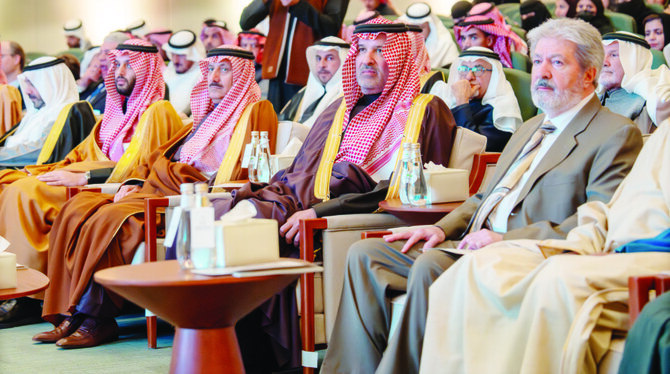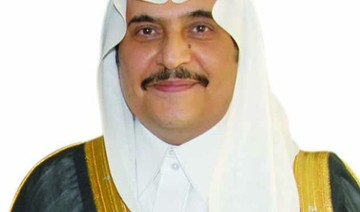RIYADH: On Jan. 15, 1902, King Abdulaziz Al-Saud returned in triumph to Riyadh after a period of exile in Kuwait, and consolidated control over both the political and religious powers of Arabia.
The event marked the beginning of a new era for the Arabian Peninsula and the wider Islamic world.
This year on Jan. 15, to mark the monarch’s return 123 years ago, the King Abdulaziz Historical Center in Riyadh celebrated the centennial of an iconic book, “Kings of Arabia,” one of Lebanese-American writer and political activist Amin Rihani’s most notable books.
Published in 1925, it follows the writer’s journey across the Arabian Peninsula and his encounters with its most prominent Arab leaders.
Upon meeting King Abdulaziz, known at the time as the Sultan of Najd and its dependencies, Rihani famously had this to say about the late ruler: “Now that I have met all the Arab leaders. None of them (is) greater than this man.
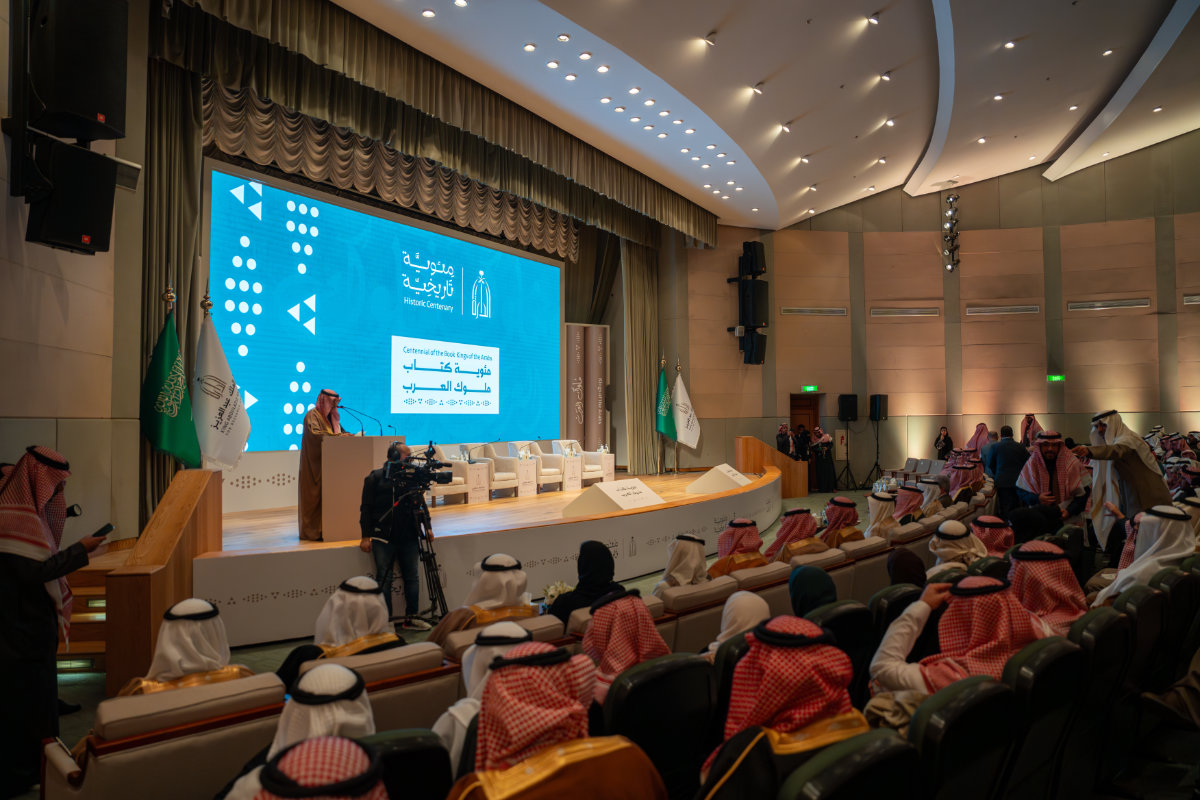
Centennial celebration of Kings of Arabia book at the King Abdulaziz Historical Center in Riyadh. (AN photo by Jafar AlSaleh)
“And I am not hastily judging nor am I exaggerating. As he is truly great. Great in his handshake and smile. Great in his words and his gaze.
“Great at stomping the Earth with his staff. He speaks his mind in the first meeting fearing no man. He reveals his secret and what a great secret it is.
“A man who knows his worth and believes only in Allah and himself. The man in him is greater than the Sultan. And he earned his people’s leadership with merits, not titles.
“I came to Ibn Saud with a heart that carries neither love nor hate as I told him. Neither the British’s nor the Hejaz’s opinions, neither the praises nor the condemnations had affected me, and the heart was filled with love in the first meeting between us.
“Even though this love might not be a result of admiration. I am delighted to have visited Ibn Saud after having visited them all. Truly, he is the crowning jewel.”
Prince Faisal bin Salman, special advisor to King Salman and chairman of the board of directors of the King Abdulaziz Foundation for Research and Archives, spoke at the event which was hosted jointly by the foundation and the Amin Rihani Organization.

Prince Faisal bin Salman bin Abdulaziz Al Saud speaks during the centennial celebration of Kings of Arabia book at the King Abdulaziz Historical Center in Riyadh. (AN photo by Jafar AlSaleh)
Prince Faisal spoke about how Rihani came to Saudi Arabia with the preconceived notions common among many people who “did not have the opportunity to get to know the Arabian Peninsula up close.”
“At that time, the Arabian Peninsula and its neighboring countries were wary of the other, and looked at it with suspicion,” he said.
“King Abdulaziz in his wisdom adopted an open and welcoming dialect for all, believing that living authentic Islamic and Arab values such as faith, trust in Allah, generosity, courage, and chivalry would change understanding and break barriers and distances.”
Prince Faisal also saluted the progress made in the Kingdom since the establishment of the First Saudi State in 1932.
“This scene pictured by Rihani in his book, conveyed ... the building of a contemporary state that combines authenticity, modernity, and ambitious fruits for the future.
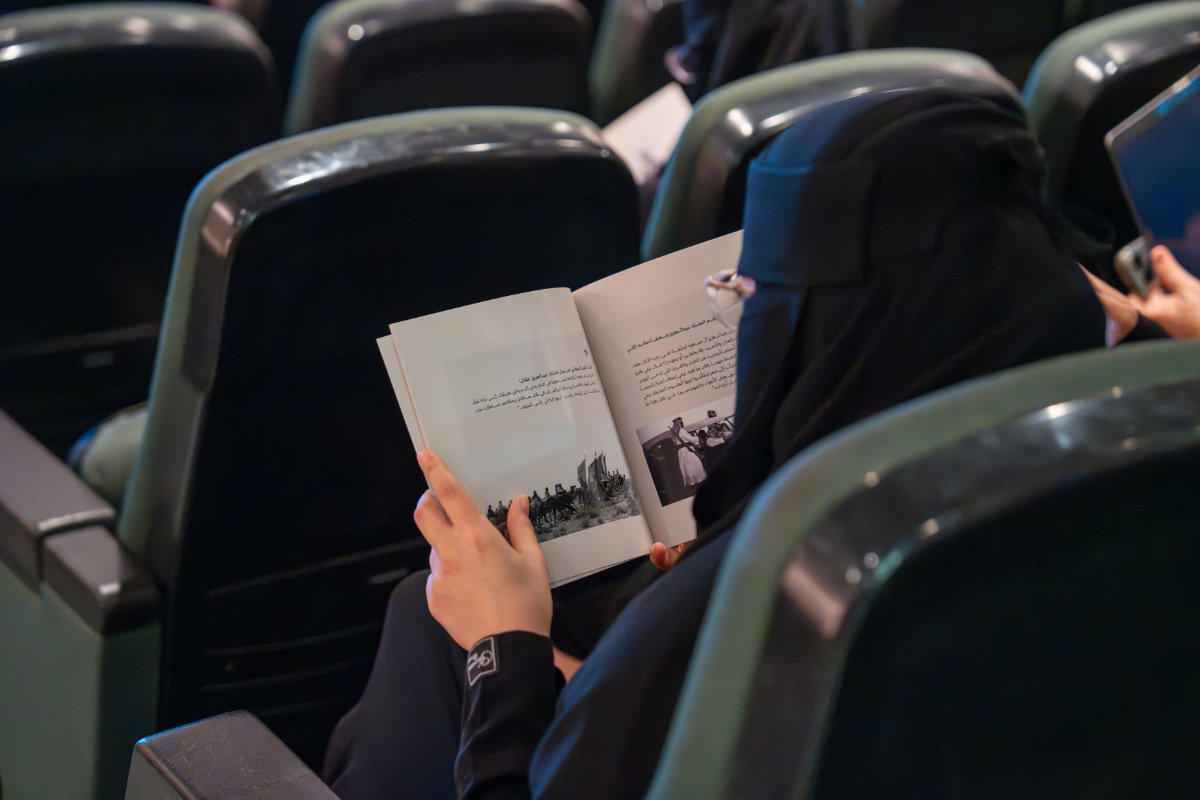
Centennial celebration of Kings of Arabia book at the King Abdulaziz Historical Center in Riyadh. (AN photo by Jafar AlSaleh)
“The success established by King Abdulaziz was continued in his sons, the kings after him, arriving at Custodian of the Two Holy Mosques King Salman bin Abdulaziz and His Royal Highness Mohammed bin Salman.”
Prince Faisal added that “they too walk on the same path of preserving the Islamic principles and authentic Arab values of Abdulaziz, the spirit of growth and opening up to the world, which made the Kingdom of Saudi Arabia today one of the most important models globally in development, progress and innovation.”
Prince Faisal said that he has never encountered anyone who had previously held a negative image of the Kingdom and who had not reevaluated their misconceptions after visiting and meeting its people.
Rihani’s nephew, president of the Amin Rihani Organization and professor at Notre Dame University in Lebanon, Amin Albert Rihani, delivered a speech remotely.
“Those interested in Middle Eastern studies around the world will find it difficult to understand the developments and current events in the Middle East at the beginning of the 21st century unless they read the book ‘Kings of Arabia,’ because it constitutes the cornerstone of the history of the Near East in general and the Arab world in particular, and it also constitutes the gateway to contemporary Arab history,” he said.
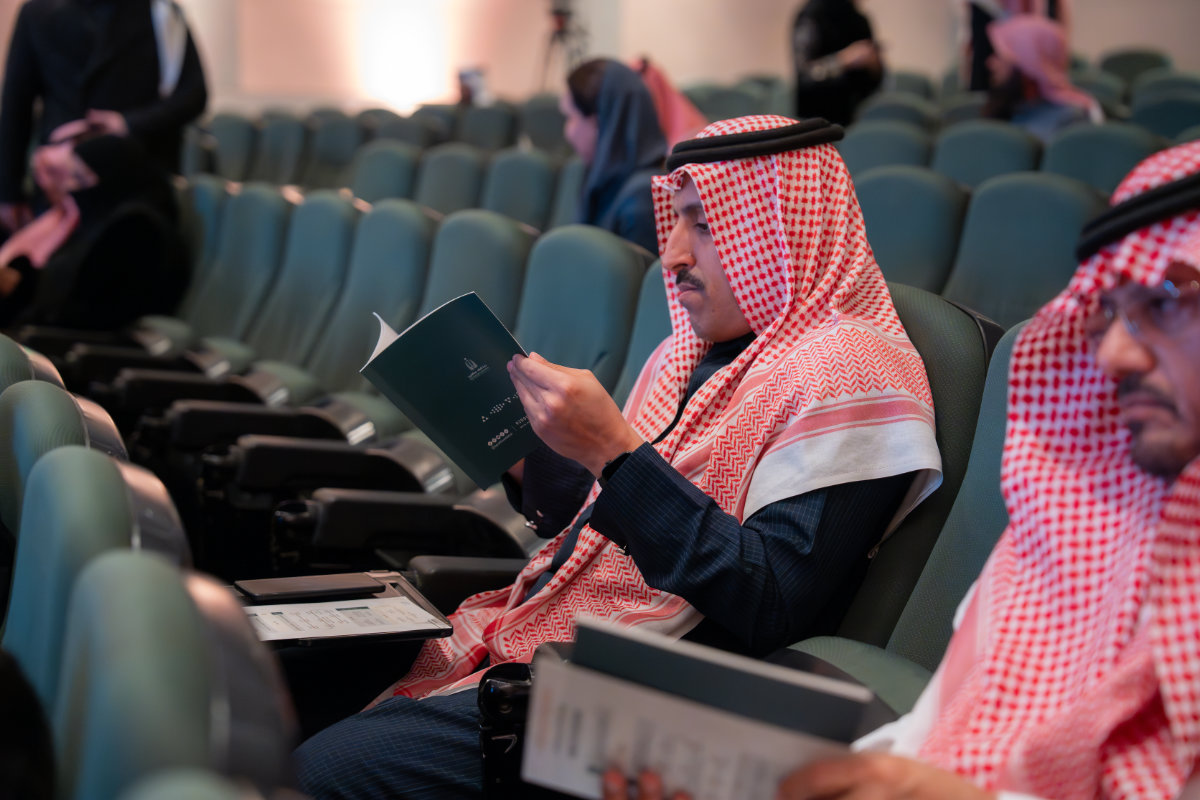
Centennial celebration of Kings of Arabia book at the King Abdulaziz Historical Center in Riyadh. (AN photo by Jafar AlSaleh)
Rihani spoke about the rich history and affection that connects the Kingdom of Saudi Arabia and Lebanon.
“How did (Rihani’s) historical journey build, at the last of its stations, the first bridge of affection between the first two newly emerging Arab countries, between Lebanon, which was officially established in 1920, and the Kingdom of Saudi Arabia, whose unification was announced in 1932?
“It is a bridge of affection, love, and appreciation between Sultan Abdulaziz and Amin Rihani.
“It is the first bridge between the small homeland with the big heart and the large homeland with the vast and wide vision, ready to keep up with the times and keep up with the model that is to be emulated in every poverty and victory.”
Rihani’s family also attended the event as the prince’s guests of honor.
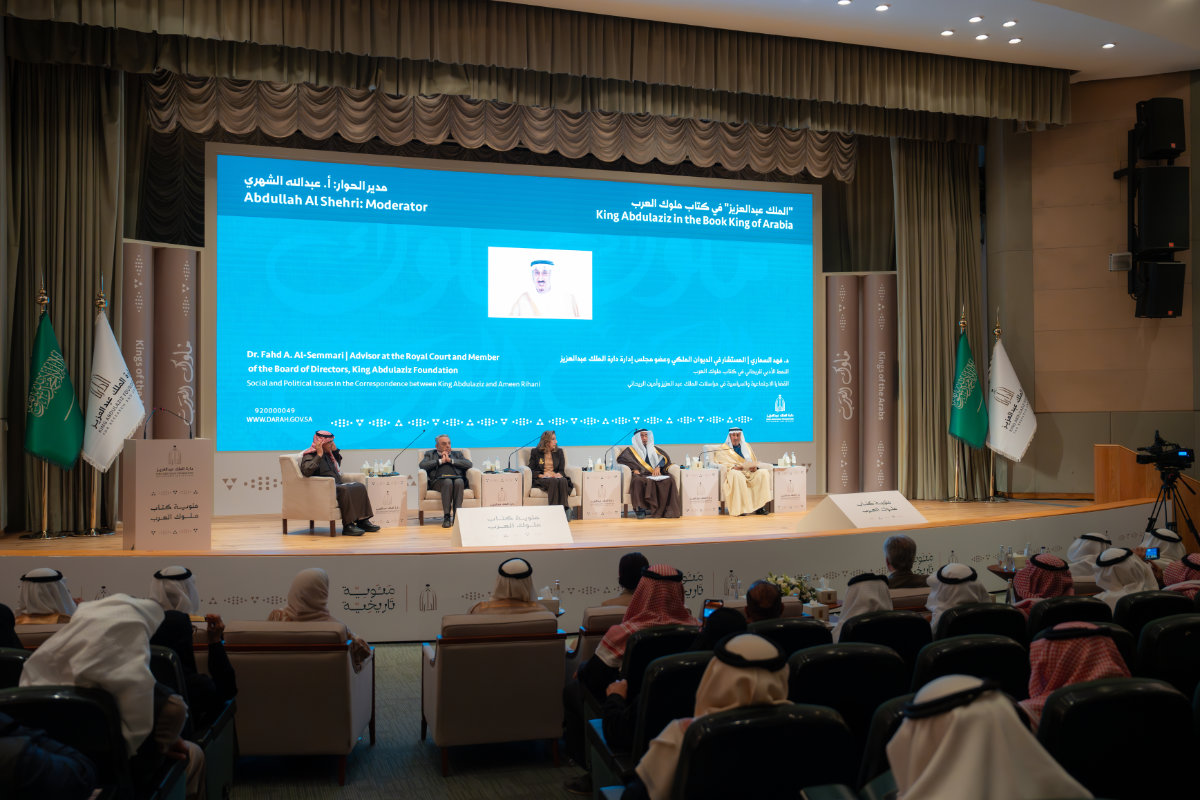
Thought sessions at the Centennial celebration of Kings of Arabia book at the King Abdulaziz Historical Center in Riyadh. (AN photo by Jafar AlSaleh)
Following the presentation, the event concluded with two panel discussions on the prominence of King Abdulaziz in “Kings of Arabia” and on the book’s history.
The celebration also featured a short clip of a newly released documentary film detailing Rihani’s journey and its significance in the birth of the Kingdom of Saudi Arabia.


